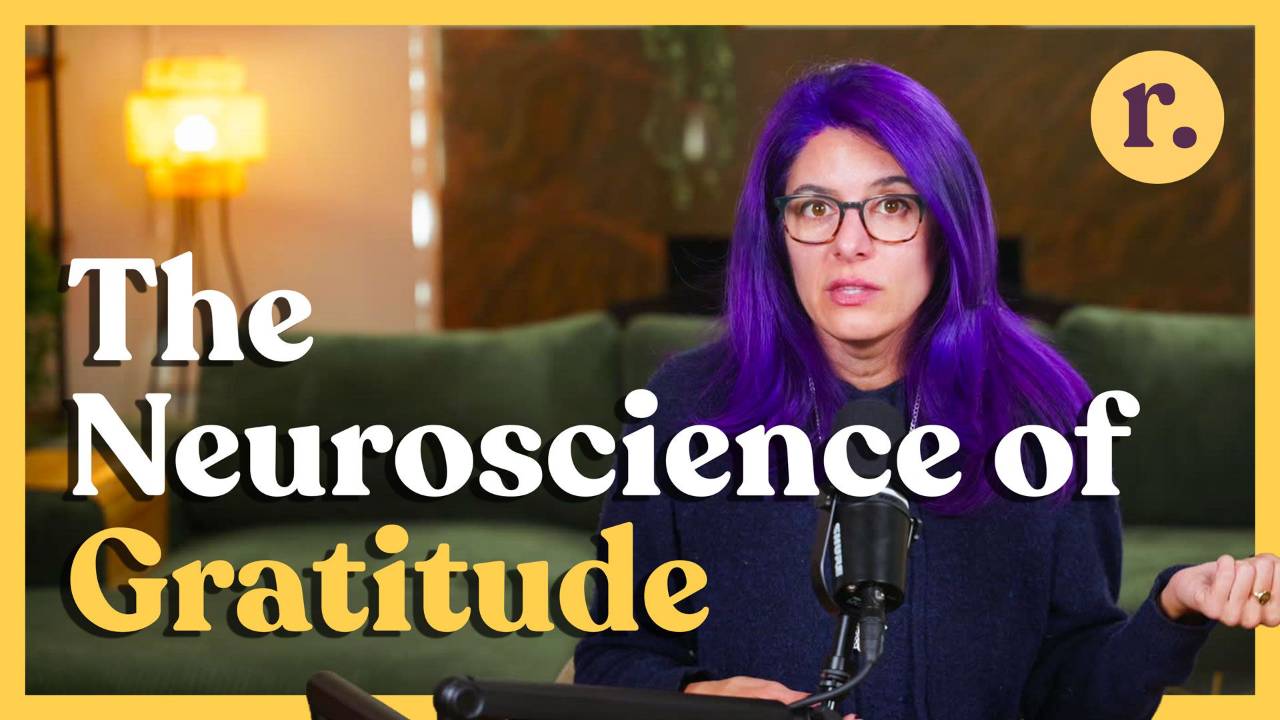Episode 21: The Neuroscience of Gratitude: Feel It, Don’t Just List It – Entrée
Nov 24, 2025
→ Download the 1-1-1 Gratitude Practice!
Most of us were taught to “be grateful.” But if you’ve ever written a gratitude list and felt nothing, you’re not alone—and you’re not doing it wrong. You’re just missing the part that actually changes the brain.
In this special Thanksgiving-week episode of Relish, Alyssia Sheikh dives into the real neuroscience of gratitude: how taking 10–20 seconds to actually feel a good moment is what rewires your emotional patterns, shifts the negativity bias, and signals safety to your nervous system. This isn’t a bypass, and it’s not about pretending everything is fine. It’s about giving your brain a chance to register what is good too.
You’ll learn why gratitude activates parasympathetic pathways (“rest-and-receive”), boosts dopamine and serotonin, supports immunity and sleep, and helps you show up to the holidays grounded and intentional. Alyssia also shares a 90-second guided practice, a beautifully simple 1–1–1 daily gratitude ritual, and practical ways to pair gratitude with boundaries—so you can bring presence into real life, not just onto paper.
✨ In this episode, you’ll learn:
- Why gratitude is a state of being, not a list
- How 10–20 seconds of “staying with it” rewires your brain (experience-dependent neuroplasticity)
- The science behind why gratitude softens the negativity bias
- How to practice gratitude without minimizing your real feelings
- A 90-second guided embodiment practice
- A 1–1–1 Gratitude & Appreciation ritual you can use with partners, kids, or at the holiday table
- How gratitude + boundaries help you navigate challenging family dynamics
💭 Reflection:
What’s one tiny moment in the past 24 hours that brought you ease, warmth, or connection? And what happens when you let your nervous system stay with that for just a few seconds longer?
Relevant Episodes:
- Ep 20: Stop Fixing Yourself / 80–20 Shift
- Ep 10: Compassion In Action | From Self-Kindness to Fierce Boundaries
Follow & Connect:
- Join the Newsletter
- IG: @alyssiasheikh
- TikTok: @alyssiasheikh
- YouTube: Alyssia Sheikh
- Email me: [email protected]
- Call our hotline and leave a voicemail! (213) 632-9972
- Book a Self-Trust Session with Alyssia
- The Hoffman Institute (Alyssia is a Hoffman Process teacher; podcast is not affiliated)
- The Hoffman Process Instagram
Relevant Links & Resources:
- The Hoffman Process Instagram
- Emmons, R. A., & McCullough, M. E. (2003). Gratitude and well-being research; psychological and physical benefits of gratitude practices.
https://greatergood.berkeley.edu/article/item/why_gratitude_is_good - Algoe, S. B. (2012). Find, Remind, and Bind: The social and relational functions of gratitude. https://compass.onlinelibrary.wiley.com/doi/abs/10.1111/j.1751-9004.2012.00439.x
- Fox, G. R., et al. (2015). Neural correlates of gratitude: fMRI research on how gratitude shifts the brain toward prosocial and reward networks. https://www.frontiersin.org/journals/psychology/articles/10.3389/fpsyg.2015.01491/full
- Greater Good Science Center (UC Berkeley). Research summaries and accessible science on gratitude and wellbeing.
https://greatergood.berkeley.edu/topic/gratitude - How to Overcome the Negativity Bias (Dr. Rick Hanson) https://rickhanson.com/topics-for-personal-growth/the-negativity-bias/
- Negativity Bias Review (Baumeister et al.)
https://assets.csom.umn.edu/assets/71516.pdf - Dr. Rick Hanson. “Take in the Good” — experience-dependent neuroplasticity & internalizing positive states.
https://www.rickhanson.net/take-in-the-good/
📘 Books Referenced
- Hanson, R. & Mendius, R. (2009). Buddha’s Brain: The Practical Neuroscience of Happiness, Love & Wisdom
(A central text explaining Hebbian learning, “neurons that fire together wire together,” and how to transform states into traits.)
Stay connected!
Want mindfulness tools and podcast updates delivered to your inbox? Join the community for practices, stories, and inspiration to keep you grounded.
We hate SPAM. We will never sell your information, for any reason.

